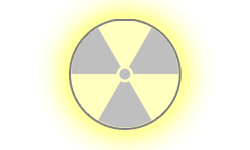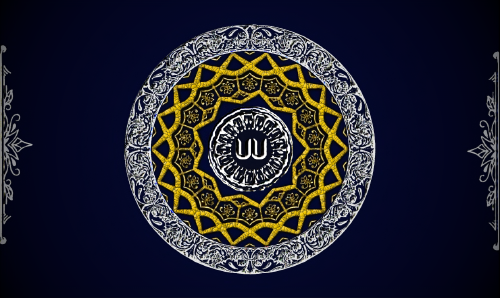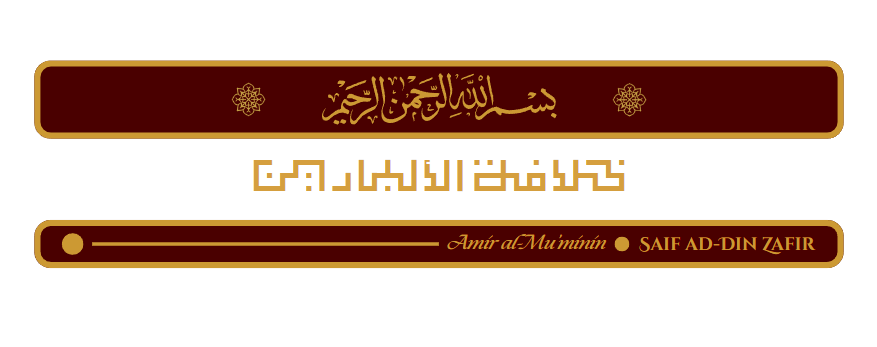| National Factbook |
| Flag: |
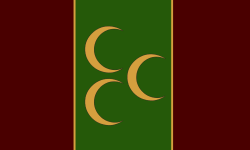
|
| Nation Name: |
Albarin |
| Leader Name: |
Saif ad-Din Zafir |
| Currency: |

Dīnār al-Amāna |
| National Animal: |
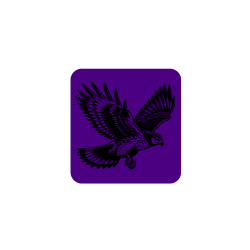
Hawk |
| History: |
Albarin stands as a testament to the enduring legacy of Islamic civilization in the Levant. Encompassing the historic cities of Damascus, Amman, Yafa, Beirut, and Jerusalem, the nation has been a crossroads of cultures, religions, and empires for millennia. From the Umayyad Caliphate's establishment of Damascus as a capital to the rich Islamic heritage of Jerusalem, Albarin's lands have witnessed the ebb and flow of history.
The modern state of Albarin emerged in the early 20th century, uniting these regions under a single Islamic governance. Despite challenges, including colonial interventions and regional conflicts, Albarin has maintained its sovereignty and cultural identity. Today, it thrives as a diverse nation, honoring its Islamic roots while embracing the myriad cultures within its borders. |
| Geography |
| Continent: |
Asia |
| Land Area: |
73,224.97 sq. km |
| Terrain: |
Albarin's terrain is a mosaic of natural landscapes
Coastal Plains- The Mediterranean coastline, including Yafa and Beirut, features fertile plains ideal for agriculture and urban development.
Mountain Ranges- The Lebanon and Anti-Lebanon mountains provide natural fortifications and are home to ancient cedar forests.
Jordan Rift Valley- Stretching from the Sea of Galilee to the Dead Sea, this valley includes the Jordan River and is a vital agricultural zone.
Desert Plateaus- Eastern regions near Damascus transition into arid plateaus, part of the Syrian Desert. |
| Highest Peak: |
Mount Hermon,
2,814 meters
|
| Lowest Valley: |
Jordan Valley,
-430 meters
|
| Climate: |
Albarin experiences a Mediterranean climate
Summers hot and dry, with coastal areas averaging 30°C (86°F) and inland regions reaching higher temperatures.
Winters mild and wet, with coastal rainfall supporting agriculture; mountainous areas may see snowfall.
Rainfall varies by region, with coastal cities like Beirut receiving up to 800mm annually, while inland areas like Amman receive around 350mm. |
| People & Society |
| Population: |
3,612,637 people |
| Demonym: |
Albarinian |
| Demonym Plural: |
Albarinians |
| Ethnic Groups: |
Levantine - 85.0%
Jews, Circassians, Armenians - 13.0%
Kurds, Turkmen, Western Europeans - 2.0% |
| Languages: |
Arabic - 90.0%
English, French, Hebrew - 50.0%
Armenian, Adyghe, Kurdish, Aramaic - 5.0% |
| Religions: |
Islam - 75.0%
Christian - 15.0%
Judaism - 10.0% |
| Health |
| Life Expectancy: |
81 years |
| Obesity: |
1% |
| Alcohol Users: |
0.5% |
| Tobacco Users: |
8% |
| Cannabis Users: |
0.1% |
| Hard Drug Users: |
0% |
| Economy |
| Description: |
Albarin operates a mixed economy, balancing Islamic financial principles with modern economic practices. Key sectors include agriculture, manufacturing, and services. The nation emphasizes ethical investment, prohibits usury, and promotes social welfare. Trade routes through Damascus and Beirut bolster commerce, while technological hubs in Amman and Jerusalem drive innovation.
|
| Average Yearly Income: |
$100.16 |
| Gross Domestic Product (GDP): |
$8,998,463,865.00 |
| GDP per Capita: |
$2,490.83 |
| Gross National Income (GNI): |
$4,326,208,125.00 |
| Industries: |
|
| Military |
| History: |
Albarin maintains a robust defense system
Army- Ground forces equipped for both conventional and asymmetric warfare.
Navy- Protects the Mediterranean coastline and maritime interests.
Wikipedia
Air Force- Modern aircraft fleet ensures air superiority and rapid response.
Special Forces- Elite units trained in counterterrorism and reconnaissance. |
| Soldiers: |
240,000 |
| Tanks: |
20,000 |
| Aircraft: |
1,200 |
| Ships: |
240 |
| Missiles: |
0 |
| Nuclear Weapons: |
0 |
| Last Updated: 07/12/2025 03:27 pm |


